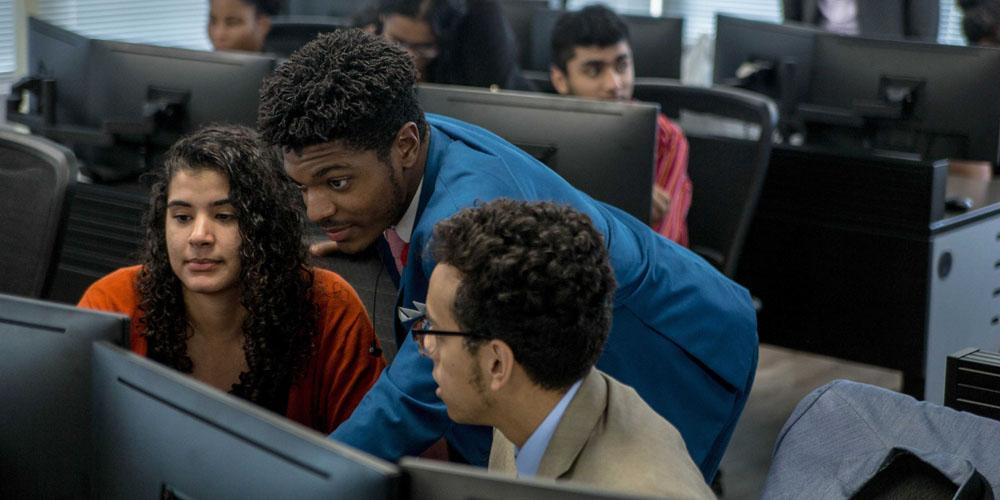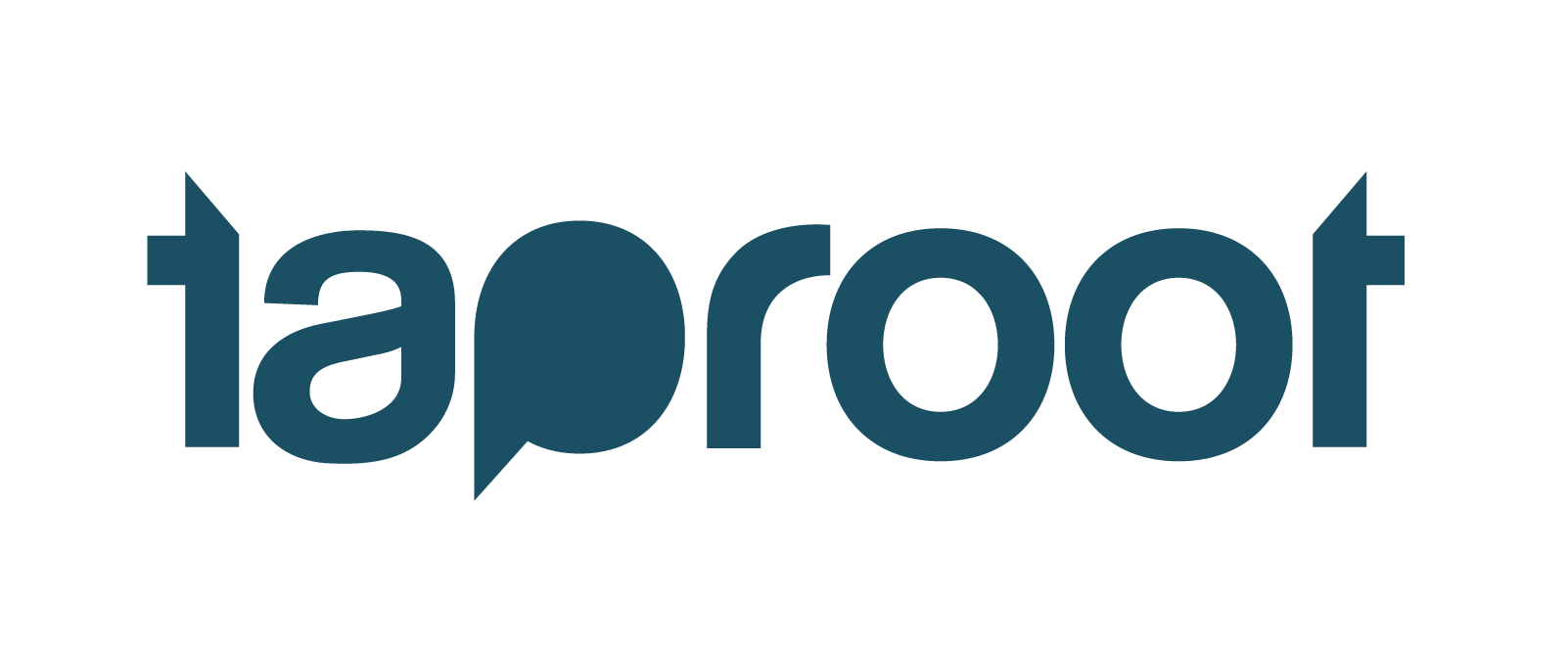The Difference Great Pro Bono Can Make: How Per Scholas Uses Pro Bono to Do More
Damien Howard, Executive Vice President of Social Ventures at Per Scholas, shares how pro bono has been a key ingredient in their work.

As the year draws to a close, we’re highlighting some of our favorite pro bono stories of 2020. This profile is a part of our ongoing series on how workforce development organizations in particular are using this valuable resource.
Building a robust workforce is essential for healthy, strong communities—workforce development nonprofits provide training and services so jobseekers can find careers and thrive.
This year we’re featuring workforce development nonprofits that are using pro bono to strengthen their teams and build communities that work. We’ve also just released a downloadable guide specifically designed for workforce development nonprofits getting started with capacity building!
Recently we spoke with Damien Howard, the Executive Vice President of Social Ventures at Per Scholas, to get a clearer picture of how pro bono has been an ingredient in their work and what he sees for the future of Per Scholas.
The workforce challenge they strive to meet:
Per Scholas was founded over 25 years ago with a mission to open doors to transformative technology careers for people in communities often underrepresented in tech. They work toward their mission of advancing economic equity through tech education by connecting skilled talent to top employers. Per Scholas does this by focusing on three key areas. First, they collaborate with businesses to build industry- and job-specific training programs based on employers' IT needs. From there, they provide both technical skills training and professional development to ensure students will be successful in class and beyond when they enter the workforce.
After tapping these talent pools and assuring that students have the skills employers are looking for, they move on to the third area of focus: matching talented graduates with employers. Throughout the entire process, Per Scholas pays close attention to shifting employer and student needs while keeping a finger on the pulse of the broader workforce development field.
Getting the right people in the right room:
Pro bono has been a part of Per Scholas’ growth over time—Damien described a number projects with Fortune 500 companies and a recent partnership that assisted in bringing their customized training platform to life.
Per Scholas works with students at 14 sites and decided to use a new virtual platform in order to expand their reach. “Launching this customized training model was pretty intense for us, and we got some really high-level individualized pro bono support as we were preparing for the rollout,” Damien said. “They walked us through some very deep topics and questions that needed to be answered.” This pro bono work helped Per Scholas conduct a SWOT analysis and generate useful observations that Damien’s team used as a tool when shaping the strategy for their exciting virtual platform.
How did the pandemic change their operations?
“You have to wrap everything around the individual—make sure that your students and employees are safe.”
COVID-19 turned life upside down for nonprofits and companies everywhere, and Per Scholas was no exception. Managing the safety and well-being of their staff and students has always been paramount, and during the pandemic that has meant re-structuring their facilities and understanding how people are feeling about coming back to in-person training.
“We’ve invested a lot into making our facility as touchless as possible… installing barriers, supplying sanitizer, keeping people 6’ to 10’ apart at all times… we even re-did some of the ventilation systems,” Damien shared. “And the truth is, we have to be prepared to do more, or take a pause, if that is necessary for the safety of our students and staff.”
Reopening strategies are a brand new and difficult planning issue for many nonprofits, and people who understand sourcing supplies, government regulations, and safety protocols could be extremely valuable. The current crisis could also be a real opportunity for skilled volunteers to share their know-how pro bono. “Help around those questions for nonprofits—knowing who to talk to, or how to get the money for the PPE you need, etc.—would be huge right now,” Damien explained.
Several nonprofits in Per Scholas’ network have been wondering how to put together an executable strategic plan for the next two years, find the talent to sustain and grow their programs, and source legal aid. Pro bono can help in all these cases.
Advice for other nonprofits interested in pro bono:
Damien shared some specific tips for nonprofits that are exploring how they can use pro bono effectively and had some wonderful suggestions based on his experience over years of pro bono engagements:
- Understand and communicate your scope and time constraints. “Be very intentional about fleshing out what you want to get out of the engagement and be realistic about the time you have.” It’s important to keep in mind how much time you have allocated for the project and how much work it will realistically entail. A smaller scope that gets completed is better than an ambitious scope that’s left unfinished!
Pro bono tip – if you’re unsure how to scope projects out on your own, you can make ‘Developing a Scope of Work’ a pro bono request of its own! You can also read more about what goes into making a great scope in this blog.
- Be clear and vocal early and often. The only way a volunteer can know if they’re on the right track is if you tell them. Clarity in the early stages is especially useful—it saves time and frustration down the road by setting everyone up for success.
As Damien put it, “Be extremely honest about whether your project is going in the right direction or not. Be transparent, pay attention to the scope, and be vocal!”
- Always keep your deadlines in mind. Time and energy are often stretched thin for nonprofits, and right now it’s even more important to be cognizant of deadlines. Make sure to clearly articulate your project’s timeline at the kick-off meeting and make it easy to reference for everyone involved.
“Get organized internally, then be very clear on the timeframe and goals right from the start,” Damien recommended. “Figure it out in the first meeting.”
Here at Taproot, we often talk about The Golden Rule of Pro Bono: Treat every engagement as though it were a paid consultation. Damien’s advice to speak up and keep the goals of a project clear are perfect examples of that golden rule in action!
What pro bono has meant for Per Scholas:
Pro bono has moved the needle on a number of initiatives at Per Scholas and empowered their staff and students—because of it, they’ve been able to grow and build projects with expert guidance along the way. “We had the right people,” Damien said, reflecting how pro bono has impacted the work they do. “They did this job every day.”
The Per Scholas team plans to continue working with skilled volunteers in order to grow strategically and meet the demands of the changing world of work. Pro bono gives their team access to experts who want to donate their skills and time, and provides them with welcome fresh perspectives:
“While you're in an organization, you can say something until you are blue in the face. But if you have an external subject matter expert come in, it will help move things along. [Pro Bono] helps remove barriers, provide rationale as well as actionable information that your team can use in real time… I’ve worked with a number of consultants and had a bunch of pro bono projects, and I just prefer Taproot pro bono engagements.”
Curious how pro bono could make a difference at your workforce development nonprofit? Download our workforce development project guide for examples and ideas to get you started.
Interested in getting pro bono for your organization? Sign up on Taproot Plus to start connecting with skilled marketing, tech, and strategy volunteers.

